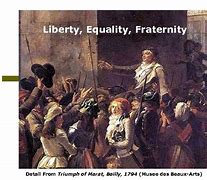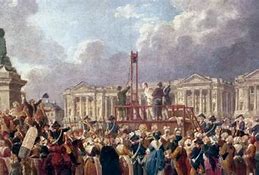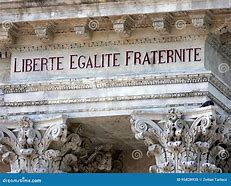The French Revolution, a pivotal event in world history, unfolded between 1789 and 1799, profoundly reshaping France and leaving an indelible mark on global politics. This dramatic upheaval brought forth ideals of liberty, equality, and fraternity—concepts that continue to resonate in modern societies. But what exactly sparked this revolution, and what were its lasting impacts? Let’s delve into the heart of this fascinating period.
Introduction: Why the French Revolution Matters
What comes to mind when you hear about the French Revolution? Perhaps images of stormed castles, rousing speeches, or the infamous guillotine? While these are vivid symbols, the revolution was far more than just dramatic moments. It was a fight against oppression, a call for justice, and a bold experiment in democracy that reverberated worldwide. Let’s unravel its causes, milestones, and consequences to understand why this chapter in history remains so significant.

The Seeds of Revolution: What Triggered the Upheaval?
Economic Struggles
France in the late 18th century was teetering on the brink of financial collapse. Years of lavish spending by the monarchy, coupled with costly wars like the American Revolution, left the country in staggering debt. The common people, or the Third Estate, bore the brunt through heavy taxation, while the nobility and clergy lived in relative luxury.
Social Inequality
The rigid structure of the Ancien Régime divided society into three estates: the clergy, the nobility, and everyone else. This system bred resentment among the Third Estate, which comprised 98% of the population but had minimal political power.
Enlightenment Ideas
Philosophers like Rousseau, Voltaire, and Montesquieu planted the seeds of rebellion with their ideas of liberty, equality, and democracy. Their writings inspired people to question traditional authority and demand a fairer system.
Poor Harvests and Famine
Nature played its cruel hand, too. Bad harvests in the 1780s led to soaring bread prices, making food inaccessible for many. Hunger and desperation ignited anger, setting the stage for revolt.
The Spark: The Estates-General and the Tennis Court Oath
In 1789, King Louis XVI called the Estates-General, an assembly representing the three estates, to address the financial crisis. However, disagreements over voting methods—with the Third Estate demanding equal representation—led to a dramatic standoff. This group declared itself the National Assembly, vowing to draft a new constitution. The famous Tennis Court Oath symbolized their determination to bring about change.
The Storming of the Bastille: A Symbolic Beginning
On July 14, 1789, Parisian revolutionaries stormed the Bastille, a fortress-prison that symbolized royal tyranny. This event marked the Revolution’s dramatic start and is celebrated annually as Bastille Day in France. But why was this moment so pivotal? It wasn’t just about freeing prisoners; it was about dismantling an oppressive regime.
The Declaration of the Rights of Man and of the Citizen
A Revolutionary Manifesto
Adopted in August 1789, this document proclaimed universal rights such as freedom of speech, religion, and equality before the law. Its principles echoed Enlightenment ideas and became a cornerstone for future democracies.
Influence on Global Movements
Did you know the Declaration inspired other revolutions? Its ideals resonated in Latin America, Europe, and even the civil rights movements of the 20th century.

The Reign of Terror: A Grim Chapter
The Rise of Radicalism
As the Revolution progressed, internal divisions and external threats escalated. By 1793, radical leaders like Robespierre took control, leading to the Reign of Terror. Thousands, including King Louis XVI and Queen Marie Antoinette, were executed.
The Guillotine: Justice or Horror?
The guillotine became the Revolution’s grim symbol. While it aimed to deliver swift and egalitarian justice, its widespread use evoked fear and controversy. Was this the price of liberty?
Women in the Revolution
The Role of Women
Women played crucial roles, from marching to Versailles demanding bread to advocating for rights. Figures like Olympe de Gouges and her “Declaration of the Rights of Woman” highlighted gender inequality.
Lasting Impact
Although women’s rights didn’t significantly advance during the Revolution, their activism planted seeds for future movements.
The Fall of the Monarchy
By 1792, the monarchy’s days were numbered. King Louis XVI was arrested, and France was declared a republic. This shift marked a dramatic departure from centuries of royal rule.
The Rise of Napoleon: A Revolutionary Outcome?
From General to Emperor
Amid the chaos, Napoleon Bonaparte emerged as a powerful leader. By 1799, he became First Consul, effectively ending the Revolution. Was Napoleon a savior or a betrayer of revolutionary ideals?
Napoleonic Code
His legal reforms upheld some revolutionary principles, like equality before the law, but his authoritarian rule raised questions about the true legacy of the Revolution.
The Global Impact of the French Revolution
Inspiring Other Revolutions
The French Revolution inspired movements worldwide, from Haiti’s fight for independence to the spread of democratic ideals across Europe.
Redefining Governance
Its principles reshaped governance, emphasizing the importance of rights, citizenship, and the rule of law.
Legacy: Liberty, Equality, Fraternity
Enduring Ideals
The Revolution’s slogan, “Liberty, Equality, Fraternity,” continues to inspire. These ideals underpin modern democracies and human rights movements.

A Complex Legacy
While the Revolution achieved monumental changes, it also led to violence and instability. Its legacy is a blend of triumph and tragedy.
Conclusion: Lessons from the French Revolution
The French Revolution was a bold experiment in reimagining society. It taught the world about the power of collective action, the importance of justice, and the complexities of change. As we reflect on its legacy, we’re reminded that the pursuit of liberty, equality, and fraternity is an ongoing journey.
FAQs
1. What were the main causes of the French Revolution?
The main causes included economic hardship, social inequality, Enlightenment ideas, and poor harvests leading to famine.
2. What was the significance of the Declaration of the Rights of Man and of the Citizen?
This document outlined universal rights and became a cornerstone for modern democracies, inspiring global movements.
3. Why is the storming of the Bastille important?
It symbolized the start of the Revolution and the fight against oppression, making it a defining moment in French history.
4. How did the French Revolution impact women?
Women played active roles but gained limited rights. Their activism laid the groundwork for future gender equality movements.
5. What is the lasting legacy of the French Revolution?
Its ideals of liberty, equality, and fraternity continue to influence modern societies, despite its complex and sometimes violent history.
Meta Description
Discover the riveting story of the French Revolution, a struggle for liberty, equality, and fraternity that reshaped France and inspired the world.


